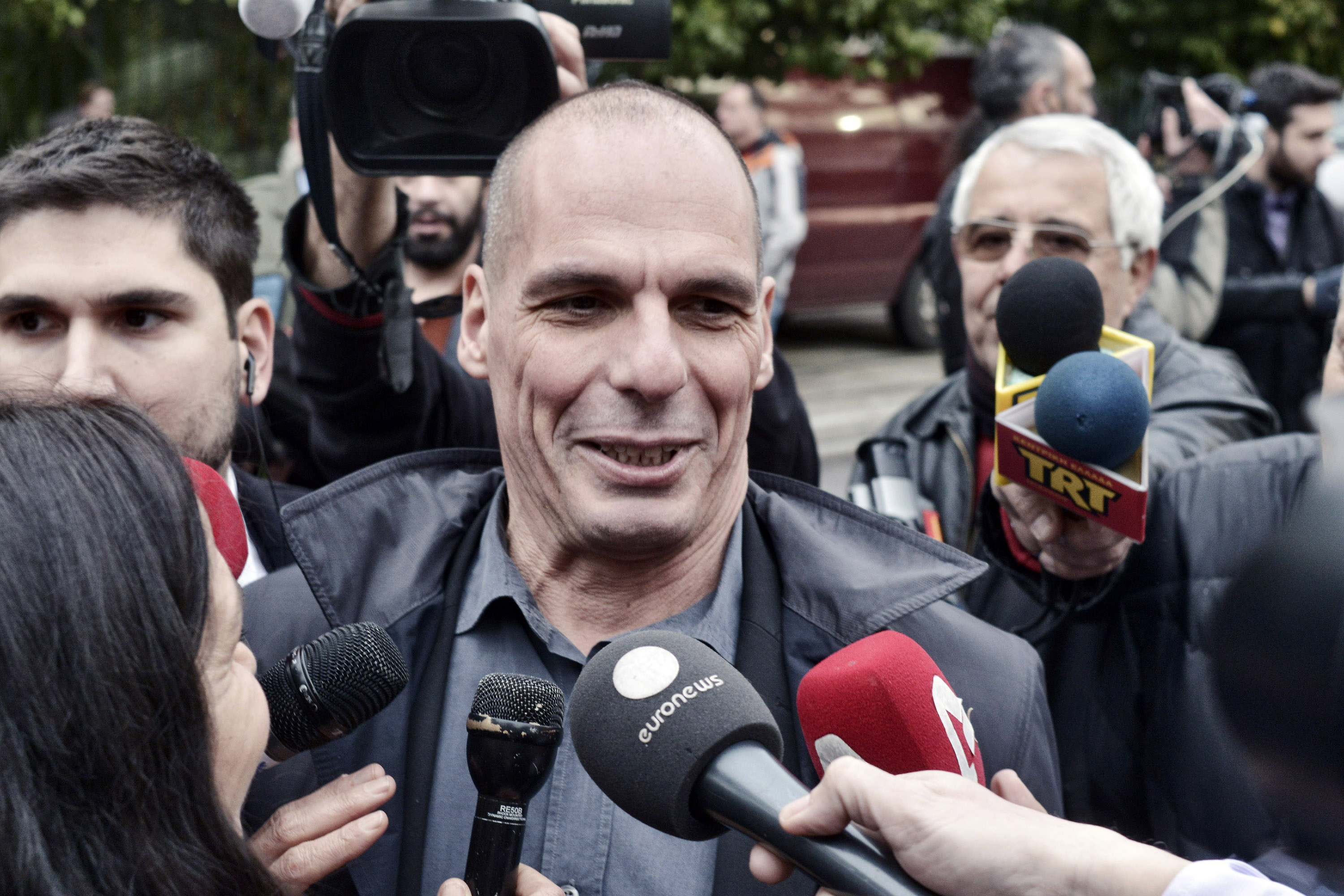Greek finance minister Yanis Varoufakis is the most interesting man in the world
Eat your heart out, Dos Equis guy


A free daily email with the biggest news stories of the day – and the best features from TheWeek.com
You are now subscribed
Your newsletter sign-up was successful
And you thought you wouldn't have to worry about Greece again...
Just to give you an update: Greece still can't pay back its debts; the EU, still led by Germany, still wants to wring Greece for every euro it can, imposing punishing austerity and tax increases; this regimen is still pushing Greece to the brink; if Greece leaves the euro, the currency might collapse, throwing the world into economic turmoil.
Enter Yanis Varoufakis, the most interesting man in the world right now.
The Week
Escape your echo chamber. Get the facts behind the news, plus analysis from multiple perspectives.

Sign up for The Week's Free Newsletters
From our morning news briefing to a weekly Good News Newsletter, get the best of The Week delivered directly to your inbox.
From our morning news briefing to a weekly Good News Newsletter, get the best of The Week delivered directly to your inbox.
Varoufakis is Greece's new finance minister, elected to Parliament and appointed on the heels of the victory by Syriza, Greece's far-left party that shot to near-majority status because of Greece's economic collapse. As finance minister, Varoufakis is leading Greece's efforts to renegotiate its bailout package with the EU.
So, yes, one reason why he's the most interesting man in the world is because he's a key player in a drama where the world's economic fate potentially hangs in balance.
But Varoufakis is also interesting because he's not a politician. He's not even an activist. He's just an economics professor. Worse: He's a blogger.
Varoufakis was an economics professor at the University of Athens, until his acid and intelligent commentary on the Greek crisis gave him global notoriety (at least among people who follow economic writing). As his Twitter bio (still unchanged since being named minister) puts it, he was "quietly writing obscure academic texts for years, until thrust onto the public scene by Europe's inane handling of an inevitable crisis." (And, let's face it, writing brilliant posts until one is plucked into a key decision-making job is every blogger's dream. Cough.)
A free daily email with the biggest news stories of the day – and the best features from TheWeek.com
Even after being named finance minister, Varoufakis still doesn't mind picking fights on the internet and lambasting journalists as idiots — not typical finance minister behavior (at least in public).
Varoufakis is also interesting because, unlike virtually every other finance minister on the planet, and certainly in the EU, he actually has an economics degree, and he actually understands the mechanics and the details of Greece's public debt and macroeconomic issues inside out.
His academic specialty is game theory, the economic theory of how people make decisions, particularly applied to negotiations. Everyone watching Varoufakis assumes that he has some secret master plan to negotiate the Germans into knots.
Plus, he looks more like an action hero than an economics professor or a politician.
Smart, good-looking, unusual, pugnacious, voluble, with an ace up his sleeve, and at the center of one of the most important dramas in the planet right now. Eat your heart out, Dos Equis guy.
But the most interesting aspect of this most interesting man is that he shows how finance and monetary issues can blur political distinctions. Varoufakis is a self-proclaimed "Marxist" who represents a far-left party, but at the same time, his analysis of the crisis would probably be supported by my idol Milton Friedman.
The Greek crisis is often cast in terms of profligate, lazy Greeks who took on more debt than they could handle and then went begging to the industrious Germans for a handout. The reality is almost the complete opposite: The euro, precisely because it was geared toward Germany's economic interests, created a massive credit bubble in Europe's southern economies, and the ensuing austerity imposed by Germany on Greece was absolute madness, destroying its economy without giving the country the possibility to repay, something Milton Friedman wouldn't have liked at all. The responsibility for the crisis lies on Germany's shoulders. Friedman would have understood, as Varoufakis does, that the ECB's monetary tight-fistedness is what is keeping Europe in economic stagnation, and increasing its public debt, not a lack of austerity.
Varoufakis shows that in many areas of policy, extremists from both sides usually have more in common than an out-of-touch elite trapped in failed paradigms.
Pascal-Emmanuel Gobry is a writer and fellow at the Ethics and Public Policy Center. His writing has appeared at Forbes, The Atlantic, First Things, Commentary Magazine, The Daily Beast, The Federalist, Quartz, and other places. He lives in Paris with his beloved wife and daughter.
-
 6 of the world’s most accessible destinations
6 of the world’s most accessible destinationsThe Week Recommends Experience all of Berlin, Singapore and Sydney
-
 How the FCC’s ‘equal time’ rule works
How the FCC’s ‘equal time’ rule worksIn the Spotlight The law is at the heart of the Colbert-CBS conflict
-
 What is the endgame in the DHS shutdown?
What is the endgame in the DHS shutdown?Today’s Big Question Democrats want to rein in ICE’s immigration crackdown
